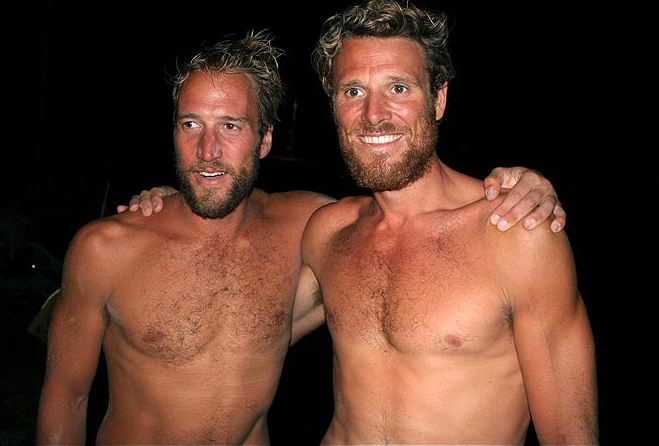Cracknell and Fogle Take On An Ocean
 I've just finished reading Ben Fogle and James Cracknell's book about their two-man row across the Atlantic, and it's brilliant.
I've just finished reading Ben Fogle and James Cracknell's book about their two-man row across the Atlantic, and it's brilliant.
Ben Fogle has become known as the accidental adventurer, with a bimbling charm that belies his competency, experience and motivation: he studied in Costa Rica; spent a year on a remote island in the Scottish Hebrides; he was an officer in the Royal Navy Reserve; and he has also done the gruelling Marathon Des Sables. Cracknell is a double Olympic rowing champion, who took on the Atlantic challenge as an alternative to returning to rowing at the top level.
Their experience (and the documentary that followed) brought Ocean rowing into the public consciousness - some of our current "professional ocean rowers" also competed in the same Atlantic crossing, but in different classes (Chris Martin and Roz Savage both rowed singles in the 2005/2006 race. But this is no token celebrity effort. The book is effectively two in one, with each event written by James and Ben separately, giving a fascinating insight into how one event can be remembered from two differing perspectives. The book charts the challenging fund-raising process as well as the race itself (giving an insight into just how hard it can be to raise sponsorship) and it wasn't until I read this that I realised how hard ocean rowing is.
The dualistic authorship shows up how different the two rowers' motivations are, and how they cope with different sorts of pressure.
Fogle's sole aim is to complete the race (he has only ever wanted to be a participant and has never been a "winner"). For Cracknell, being first is the only finish that will satisfy him, and we see him meticulously shaving the hull, scraping barnacles off the hull in storms, tweaking seats, creating spreadsheets. The differing aims are bound to lead to tension which, under the huge pressures, eventually leads to conflict. What's great is that, by seeing both points of view, you can empathise with (and be frustrated by) both characters.
The challenges of the race are two-fold: the physical to push through the pain; and the mental to stop yourself from going mad.
I was impressed by Fogle by the end of this book. At times he comes across, in Cracknell's opinion, as petulant. But the mentality, desire to win and single-minded obsession of an Olympic athlete is hard to empathise with: Cracknell admits that it nearly destroys him, and it's difficult to understand that drive when survival seems a daily challenge. Fogle finds himself terrified of Cracknell, who pushes Fogle to his very limits, yet it is Fogle who has the endurance and willpower to finish the race, when Cracknell starts to break down.
This is an excellent story of adventure, racing tension and high drama - with a desalinator breaking down, capsizes, storms, breaking equipment and more, you certainly won't lack excitement in this read. But at it's heart it's a story of friendship, personal challenge and achievement. It also has a fantastic quote from Ben Fogle that has inspired my to head off on an adventure:
My whole life changed as we stepped ashore. I had placed another bung in my leaky childhood complexes.
Fogle has just announced that he will be swimming the Atlantic Ocean next year for charity - rowing the Atlantic has clearly left a lasting impact on his life and choices.
Order a copy of the book from Amazon.
Check out Ben Fogle's website for his latest programmes and challenges.
Find out about what James Cracknell is up to now, especially his work for brain injury charities after his own injury whilst crossing America.
